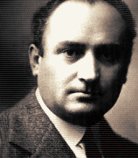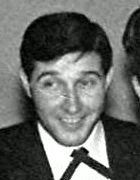Related Research Articles

Turandot is an opera in three acts by Giacomo Puccini to a libretto in Italian by Giuseppe Adami and Renato Simoni. Puccini left the opera unfinished at the time of his death in 1924; it premiered in 1926 after the music was posthumously completed by Franco Alfano.
"Nessun dorma" is an aria from the final act of Giacomo Puccini's opera Turandot and one of the best-known tenor arias in all opera. It is sung by Calaf, il principe ignoto, who falls in love at first sight with the beautiful but cold Princess Turandot. Any man who wishes to wed Turandot must first answer her three riddles; if he fails, he will be beheaded. In the aria, Calaf expresses his triumphant assurance that he will win the princess.
"In questa reggia" is an aria from Giacomo Puccini's opera Turandot set to a libretto in Italian by Giuseppe Adami and Renato Simoni. The text is based on Friedrich Schiller's adaptation of the play Turandot by Carlo Gozzi. The aria takes place in scene two of the second act, and is sung mostly by the Princess Turandot (soprano), but with a reply from Calaf (tenor), which is a key point of the opera.

Risurrezione (Resurrection), is an opera or dramma in four acts by Franco Alfano. The libretto was written by Camillo Antona Traversi and Cesare Hanau, based on the 1899 novel Resurrection by Leo Tolstoy. The first performance was given on 30 November 1904 in the Teatro Vittorio Emanuele, Turin, Italy.
Nicola Martinucci is an Italian opera singer, particularly noted for his performances in the spinto tenor of roles Calaf in Turandot, Radamès in Aida, and the title role in Andrea Chénier.
"Non piangere, Liù" is an aria sung by Calàf, the "Unknown Prince", in act one of the Italian opera Turandot by Giacomo Puccini. The lyrics were written by Giuseppe Adami and Renato Simoni. The scene takes place before the walls of the imperial palace. In the preceding aria, Liù begs Calàf not to risk his life by playing a deadly game to marry Princess Turandot, and Calàf responds to her gently, asking her not to cry.
Roy Cornelius Smith is an American operatic tenor, from Big Stone Gap, Virginia.
Éva Marton is a Hungarian dramatic soprano, particularly known for her operatic portrayals of Puccini's Turandot and Tosca, and Wagnerian roles.

Jonas Kaufmann is a German-Austrian tenor opera singer. He is best known for the versatility of his repertoire, performing a variety of opera roles in multiple languages in recital and concert each season. Some of his standout roles include Don José in Carmen, Cavaradossi in Tosca, Maurizio in Adriana Lecouvreur, Don Alvaro in La forza del destino, Siegmund in Die Walküre, and the title roles in Parsifal, Werther, Don Carlos, and Lohengrin. In 2014 The New York Times described Kaufmann as "a box-office draw, and... the most important, versatile tenor of his generation."

Francesco Merli was an Italian opera singer, particularly associated with heavy roles such as Otello, Canio and Calaf. He ranks as one of the finest dramatic tenors of the inter-war period.
"Tu che di gel sei cinta" is a soprano aria from act 3, scene 1, of Puccini's 1926 opera Turandot. It is sung by Liù under torture, prior to her suicide.

Rosario La Spina is an Australian operatic tenor who has had an active international career since the early 2000s. He has worked with many leading opera houses and orchestras, singing under such conductors as Renato Palumbo, Bruno Bartoletti, Gary Bertini, Daniele Callegari and Richard Hickox. Since 2005, he has been particularly active with Opera Australia.

Lando Bartolini was an Italian operatic tenor who appeared internationally at major opera houses and festivals. After studies in Philadelphia, he made his debut there in 1968, and received international attention in 1973 in Mascagni's Iris at the Liceu in Barcelona. He was a member of the New York City Opera from 1976 to 1979, and performed at the Arena di Verona between 1983 and 1998. With a spinto voice, he focused on Italian opera from bel canto to verismo, appearing in 49 roles such as Radames in Verdi's Aida and Calaf in Puccini's Turandot.
Oksana Dyka, also rendered as Dika, is a Ukrainian operatic soprano.
Turandot at the Forbidden City was a 1998 live production of Giacomo Puccini's opera Turandot directed by Zhang Yimou.
Elisabeth Carron, was an American operatic soprano from Newark, New Jersey, who had an active international career from the 1940s through the 1980s. In 1954 she portrayed the Young Woman in the world premiere of Gian Carlo Menotti's The Saint of Bleecker Street. From 1988 to 1996 she taught on the voice faculty at the Manhattan School of Music in New York.
Heather Engebretson is a Chinese-American operatic soprano who made a career mostly in Europe. Based at German opera ensembles for several years, she has worked freelance from 2017, and widened her repertoire from coloratura roles to leading characters such as Puccini's Madama Butterfly. She has been praised for her convincing acting as well as the expressiveness of her lyric voice, with performances including the Royal Opera House in London, the Bolshoi Theatre and Oper Frankfurt.
Stefano La Colla is an Italian tenor who has given recitals and performed in opera internationally.

Dragana Radakovic is an operatic soprano, conductor and academic. With a flexible voice, she is able to sing bel canto as well as dramatic soprano roles. She has appeared at major opera houses in title and leading roles, including Bellini's Norma, Verdi's Aida, and Puccini's Turandot.

The Curse of Turandot is a 2021 Chinese romantic fantasy film directed by Zheng Xiaolong and starring Guan Xiaotong, Dylan Sprouse, Hu Jun, Lin Siyi, Collin Chou, and Wang Jia. The film is a loose adaptation of the opera Turandot.
References
- ↑ "Signore, ascolta!". Aria database site. Retrieved 17 July 2018
- ↑ Turandot (libretto). G. Ricordi & Co. 1926. p. 29.